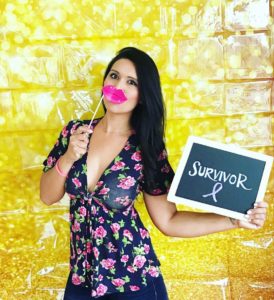
By Dr. Diane Lass
October is Domestic Violence Awareness Month, which greatly impacts our families, friends and our communities. Many people do not realize that Domestic Violence effects 1 out of 4 families and has nothing to do with race, intelligence, income or culture.
Raising awareness helps to educate on signs, symptoms and prevention as well as promoting healthy families. Unfortunately, children who witness domestic violence in their families too often end up being abused themselves or abusing others as adults.
A prominent question for victims of domestic violence is, “How did I end up here?” It is not a simple question to answer. All domestic violence victim’s situations are unique, but many share common struggles and feelings about their situations.
As a Psychologist, It has been my experience that victims often express negative feelings such as shame, embarrassment, guilt, anger, hopelessness and betrayal. In addition, victims often have difficulties with understanding how their relationships that once seemed “so perfect” went so wrong. Furthermore, a large percentage of victims have been told over and over by their abusers that the abuse was “their fault.”
It is important for victims to have access to education, services and resources, in order to begin to give their lives a new sense of meaning and direction. Victims who are physically abused also suffer from psychological abuse, which can make it difficult for victims to be confident in their decision making processes. A Safety Plan is necessary for every victim to have in place regardless of whether their current plans are to remain with their abusers or to leave them. Victims need to be provided with information in order to best safeguard themselves, their children, their finances, and their homes.
Victims often benefit by learning about Lenore Walker’s Cycle of Abuse. The relationship begins in what is referred to as the “honeymoon phase.” Victims feel as though they have found the “perfect mate,” a person who is charming, nurturing, and attentive. Initially, victims are flattered by their partner’s subtle signs of jealousy. However, as the relationship continues, victims begin to feel as though there is an underlying tension in the air, which is the beginning of the “tension phase.” There is an air of “walking on eggshells.” It is at this stage that most victims try to do what they can in order to placate their abusers, which ultimately does not work, and the cycle moves on to the “explosion phase.” It is at this stage that the abuse occurs.
After the battering incident, the cycle usually moves back to the “honeymoon phase”. The abuser buys gifts, pleads for forgiveness, and promises that the abuse will never happen again, but unfortunately it does happen again. The cycle continues on and in the process the abuser becomes more controlling and demanding. Abusers control their victims to the extent that they become isolated from friends, family and any other healthy sources of support. As victims become more and more isolated their self-confidence and self-esteem decrease. The intermittent reinforcement that victims experience during the “honeymoon phase” often keeps victims in their relationships and hopeful that the abuser will change.
As a community, it is important that we remain aware of the signs and symptoms of domestic violence and to reach out to those in need without judgment. Our non-profit organization, Center for Hope and Strength, Inc. provides therapeutic services to support, educate and empower victims to move beyond unhealthy relationships and to stop the intergenerational effects of domestic violence – 619-533-6089 or contact the National Domestic Violence Hotline: 1-800-799-7233.
If you or someone you know is suffering from domestic violence, please reach out and get the help you deserve.
 Dr. Diane Lass is a Clinical Psychologist and President of her non-profit organization Center for Hope and Strength, Inc. Dr. Lass also has a Private Practice in Ocean Beach that focuses on the whole person – mind, body and spirit. Visit her blogs at 2thrivenetwork. org 619-533-6089
Dr. Diane Lass is a Clinical Psychologist and President of her non-profit organization Center for Hope and Strength, Inc. Dr. Lass also has a Private Practice in Ocean Beach that focuses on the whole person – mind, body and spirit. Visit her blogs at 2thrivenetwork. org 619-533-6089